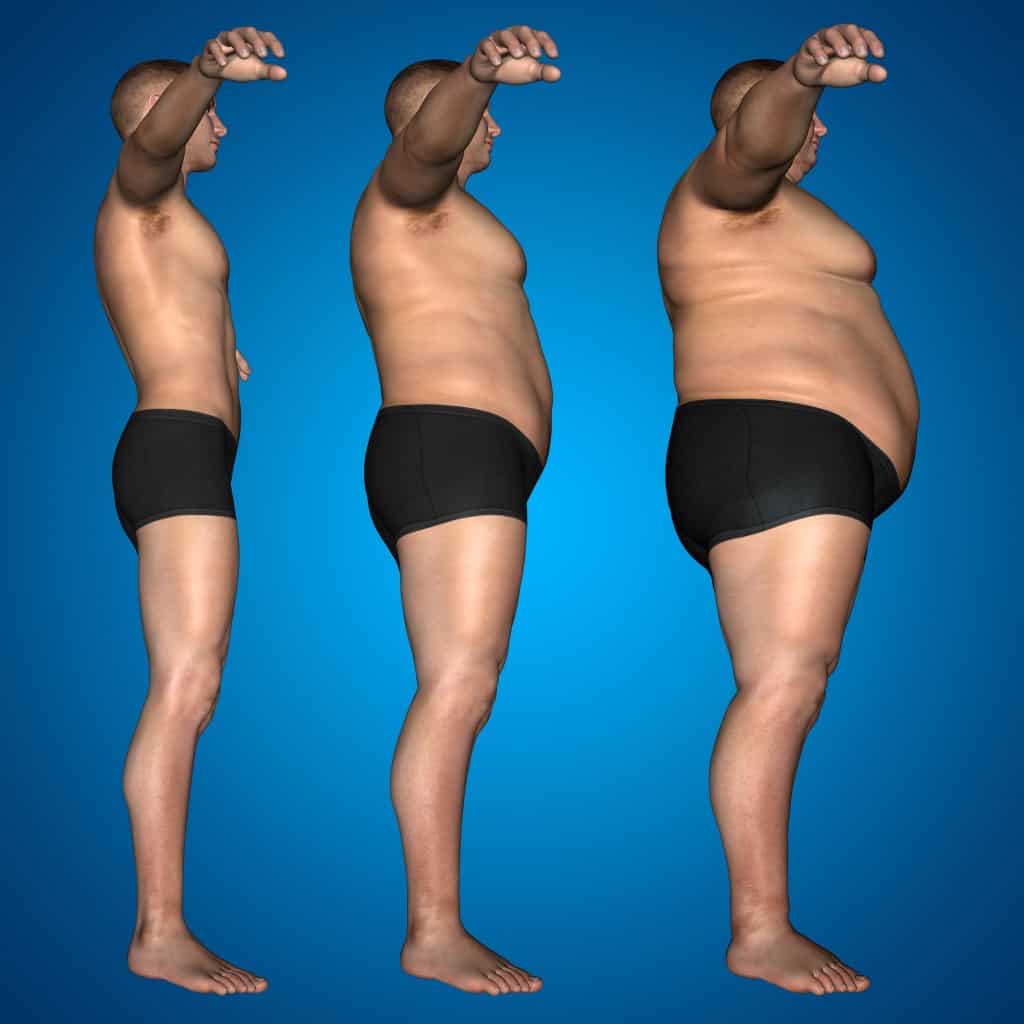Heartburn and food regurgitation are difficult to control when you are overweight. The constant pressure over the stomach forces gastric juices to escape into the esophagus. Large meals consumed daily and especially at night stress the gastro-esophageal junction area and promote acid reflux. A large and dilated gastric fundus contributes to frequent transient lower esophageal sphincter relaxation episodes leading to increased gastric content reflux into the esophagus. If you are overweight and you suffer from acid reflux disease or GERD, Houston Weight Loss Surgery Center and Houston Heartburn and Reflux Center have a solution for you. As a specialist in both acid reflux disease and weight loss surgery, I have developed a unique protocol to address GERD in overweight individuals living in Houston and surrounding communities.
There is a strong relationship between GERD and obesity. One cannot address GERD while ignoring obesity and vice versa. Weight loss, healthy food choices, and small meals serve both the overweight and heartburn patient.
Nissen fundoplication and gastric bypass surgery have traditionally been the most reliable treatments for GERD. Nissen fundoplication creates an effective antacid barrier with excellent long-term results. Gastric bypass is equally effective with the added benefit of weight loss in the overweight patient. A properly constructed gastric sleeve (no narrowing at the incisura and no retained gastric fundus) effectively diverts gastric content and acid away from the esophagus. Both gastric sleeve and gastric bypass are great solutions for GERD and obesity. Patients who are more than 50 pounds overweight and who suffer from multiple obesity related comorbidities like type 2 diabetes should strongly consider weight loss surgery over Nissen fundoplication for treatment of GERD. Nissen procedure is associated with some weight loss but not enough when compared to gastric sleeve surgery or gastric bypass procedure. Neumayer et al published a study in 2005 in Surgical Endoscopy showing significant weight loss after Nissen fundoplication. He showed persistent weight loss of around 9 pounds at one year after Nissen procedure in a group of patients with an average starting BMI of 27.6. Our experience at Houston Heartburn and Reflux Center, does not support such finding. We have noticed that the majority of our Nissen fundoplication patient, average BMI around 30, gain all their weight back at one year after surgery.
Proper hiatal hernia repair and complete circumferential distal esophageal dissection are crucial for the success of sleeve gastrectomy as an anti-reflux procedure. Hiatal hernia repair may be challenging in the obese patient. Indeed, it is almost impossible to properly release the distal esophagus in the setting of an enlarged liver and thick abdominal wall. For this reason, we put all our overweight patients on a 2-to-3-week of protein shake diet to shrink liver size. Shrinking liver size prior to surgery increases our access to hiatal hernia and distal esophagus to allow for proper dissection and repair.
Another component for success of sleeve gastrectomy as an anti-reflux procedure is good esophageal function. GERD patients presenting for weight loss surgery, mainly sleeve gastrectomy, undergo esophageal manometry. Manometry allows to measure lower esophagus sphincter pressure and esophagus contractions. Poor esophageal motility and decreased lower esophagus pressure are associated with poor acid reflux control after sleeve gastrectomy. This is particularly important in Lap Band to sleeve conversion cases. Lap band over-restriction damages esophagus function. Luckily we rarely see these cases now since gastric banding for weight loss is no longer performed.

